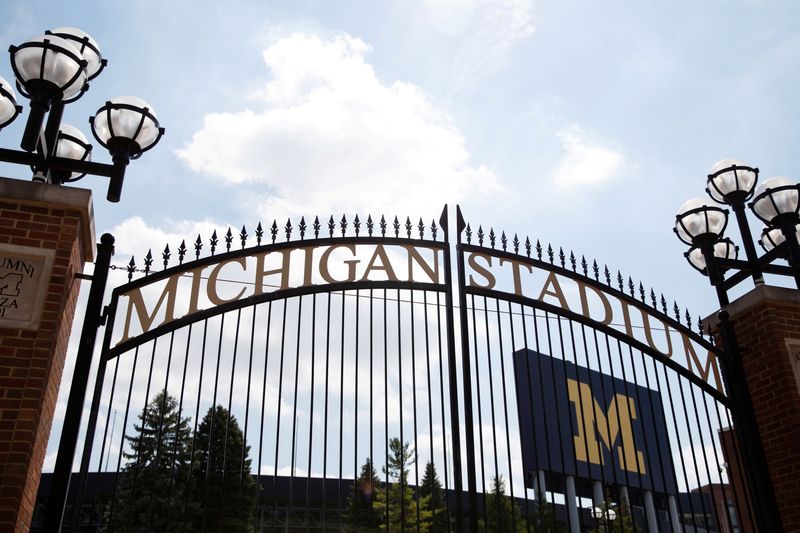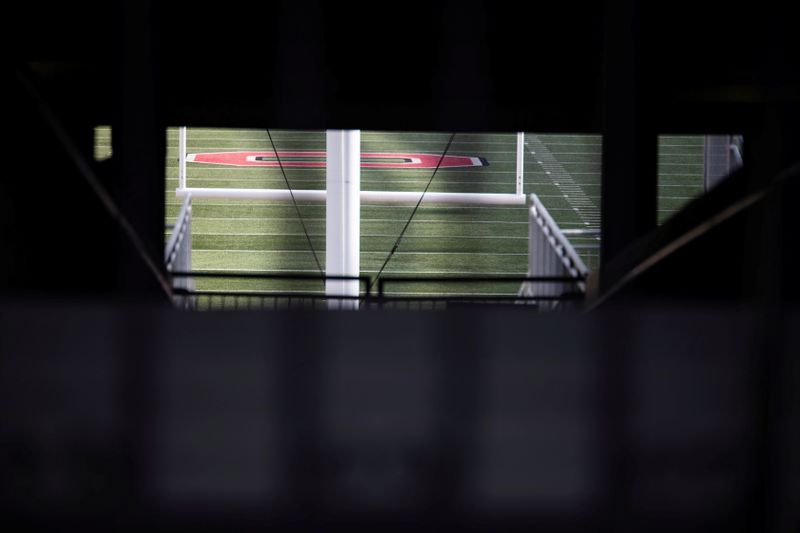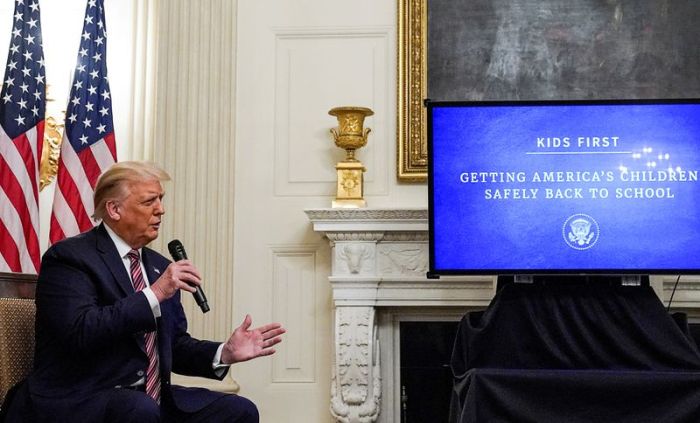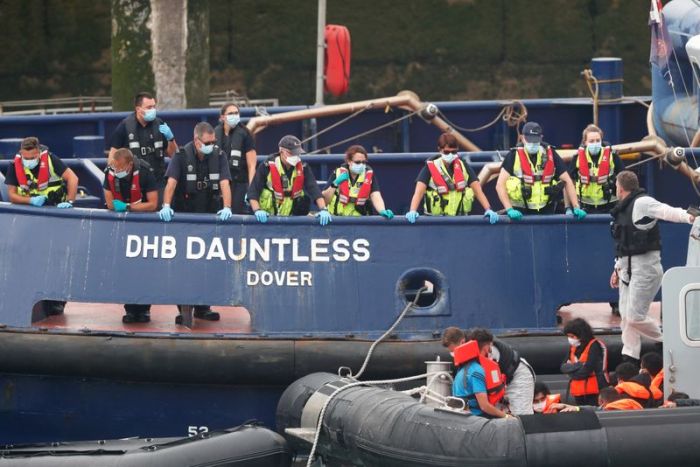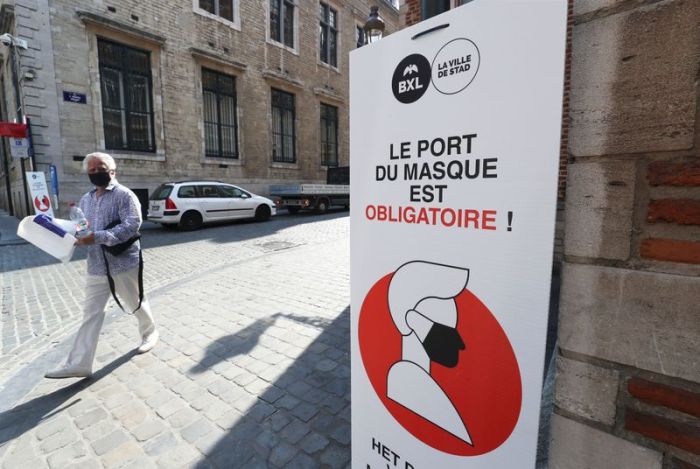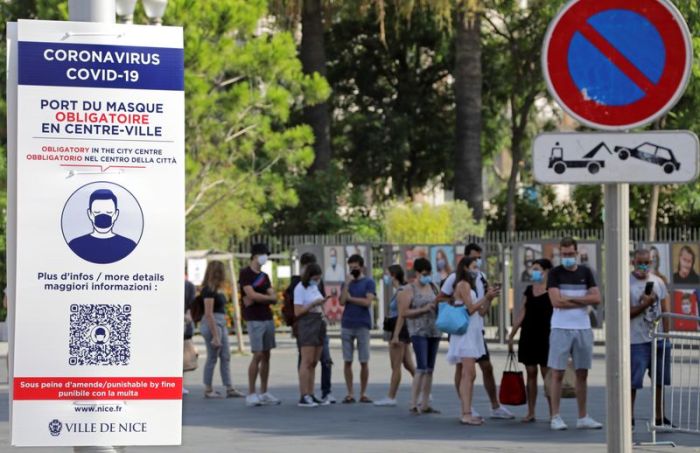(Reuters) – The cancellation of the fall college football season due to the coronavirus pandemic could send networks, athletic conferences and advertisers scrambling to reshuffle their schedules for a congested 2021, sports industry experts say.
As preparations begin to salvage the iconic American cultural tradition in the spring semester, at stake is more than $3.3 billion in advertising and broadcast media rights.
The bigger dilemma is how marketers and networks like Walt Disney Co’s ESPN and Fox Sports will juggle a year jam-packed with other postponed sporting events that could see spring college football bumping against the regularly scheduled college basketball season, and possibly even the Tokyo Summer Olympics.
Everyone will be “scrambling harder than Trevor Lawrence under an all-out blitz,” with “little to replace the demographic power of college football,” said Bob Dorfman, a sports marketing expert at Baker Street Advertising in San Francisco. Lawrence is the Clemson Tigers quarterback whose tweets this week sparked a player-led movement #WeWantToPlay to resume the season.
One concern is whether there’s enough money to go around as marketing budgets are stretched across a pile-up of events postponed from 2020.
“Sponsors might cut back because they could have other commitments like NBA or NHL, and not have the money available for college football,” said Neal Pilson, president of sports media consultancy Pilson Communications, and former president of CBS Sports.
Many advertisers chose to keep their ad commitments for other sports that had been paused, such as NBA, and have them run when play resumed, said David Campanelli, chief investment officer at ad agency Horizon Media, which counts GEICO and Corona beer as clients.
When the college football season picks up in the spring, as many hope, and crosses into a new fiscal year, that could create budget issues for advertisers, he said.
On Tuesday, the Big Ten and Pac-12, two of U.S. college sports’ most powerful sports leagues, canceled their fall season, and said they would consider moving those sports to compete in the spring. The announcements added pressure to the rest of the “Power Five” conferences about the viability of the 2020 football season.
But a spring competition format would see college football compete for dollars potentially against the National Basketball Association, Major League Baseball, the National Hockey League and college basketball games.
With the exception of some college football games that attract a national audience, many of the games have a more regional appeal and could lose out on ad dollars compared to professional sports leagues that draw bigger audiences, said Sam Bloom, chief executive of ad agency Camelot Strategic Marketing & Media. Advertisers could also pass on college football if future games are played without fans, which would limit branding opportunities in that region, he said.
A postponement will also trigger a series of complicated negotiations throughout the entire media food chain from pay-TV distributors such as Comcast Corp and Dish Network Corp, the media networks including ESPN and CBS, which air the games, down to the athletic conferences, said Patrick Crakes, principal at Crakes Media Consulting, and former vice president at Fox Sports.
Colleges earned $2.2 billion in media rights in 2018, according to an analysis from Sportico, which looked at budget reports from public universities.
If Big Ten and Pac-12 remain the only two conferences that cancel this year’s seasons, that could spell bad news for Fox, since the conferences make up about 80% of Fox’s college football inventory, said Crakes.
Fox declined to comment.
The incentive to get this right is clear. Leagues including the NBA and MLB enjoyed blockbuster viewership when they returned from COVID-19 delays last month, as sports fans devoured coverage after being denied live sports for so long.
For American audiences, college football’s weekly ritual ties generations together, with communities across the country spending Saturdays in front of the television with friends and families.
For marketers trying to reach men, “There’s simply no substitute for live sports—especially football,” Dorfman said. “Whenever it comes back, football-hungry fans will be flocking—and advertisers will follow.”
(Reporting by Sheila Dang and Amy Tennery; editing by Kenneth Li and Nick Zieminski)

